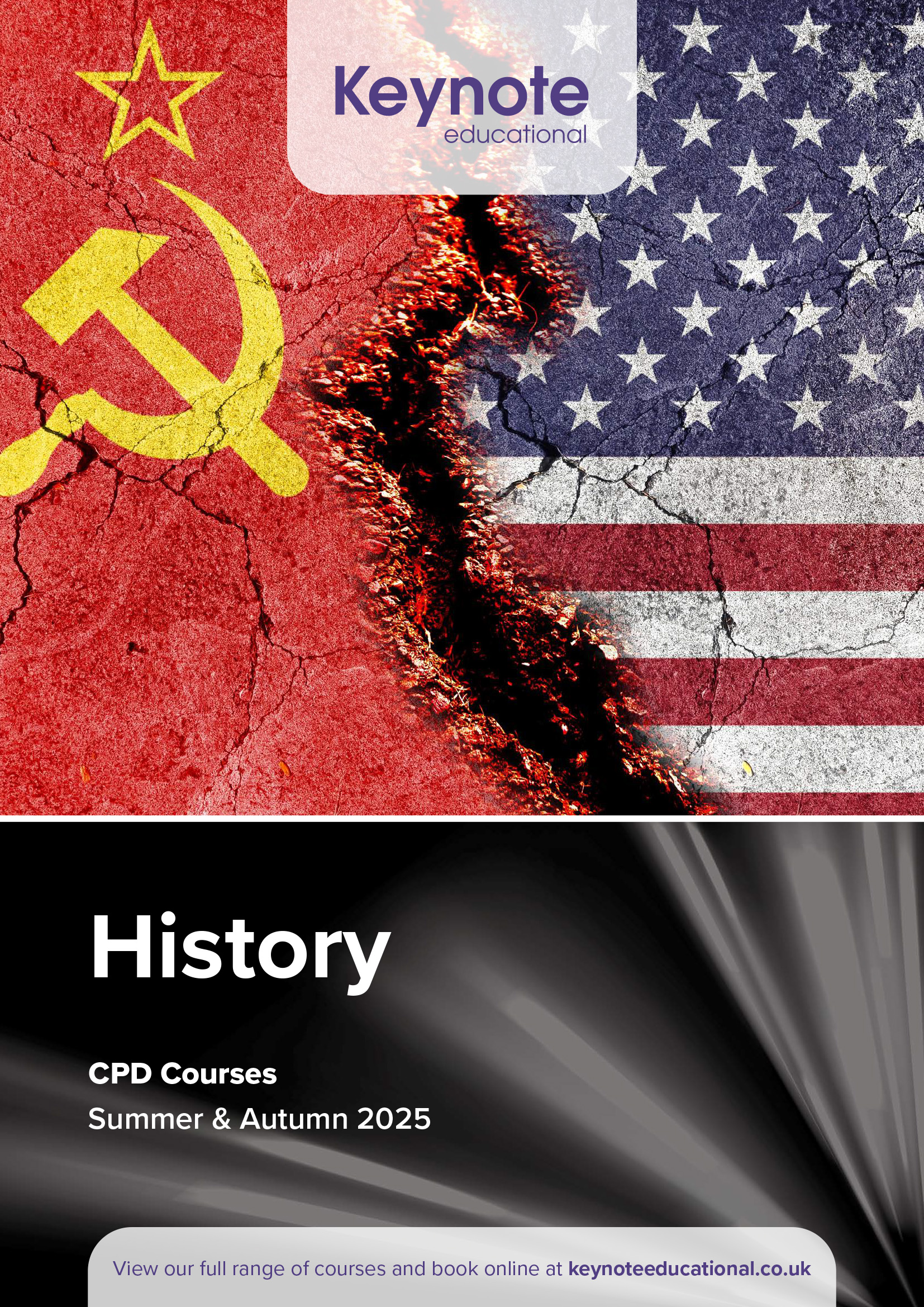Pearson Edexcel A-Level History: Aiming for A and A*
Course Code: T0038
£289.00
ABOUT THIS COURSE
This new course is designed for all teachers of Pearson Edexcel A-Level History. The aim of the course is to help teachers to fine-tune students’ performances so that they can achieve the highest grades. The course will outline what is expected of high ability students and explore ways to build your teaching practice around this. The course will demonstrate practical teaching and learning ideas and approaches for developing key skills and knowledge through which able students can enhance higher level skills. We will analyse what is expected at the top end of the mark range and explore active strategies to build your teaching practice around this to effectively stretch and challenge students. It will also provide guidance on effective revision strategies and examination techniques through which high achieving students can stand out and ensure that they succeed in the final examinations.BENEFITS OF ATTENDING
- Focused on identifying the demands of Grades A & A* and providing materials to help teachers prepare students effectively
- Emphasis on teaching approaches which are most effective with able students
- Focus on teaching approaches which stretch and challenge beyond A-Level
- A detailed look at the different demands and types of questions
- Materials will be provided that will allow teachers to cover the course in innovative and student-friendly ways that push the highest ability students
Grades A & A*: Key Student Behaviours
10.00am- The structure of the specification and using it to plan for success for the top end students
- Exam Feedback: What does it tell us about the standards set for the top learners? How can we teach to this effectively?
- Grades A & A*: What are the differences between these?
- Key attributes of Grade A & A* students in the classroom and how to identify these students
- Helping students make the links throughout the whole specification and inspiring the A* Historian
- Developing high end skills
- Which skills are the very hardest for A-Level historians?
- Avoiding potential hazards: what can cost a top student their A grade?
Break
10.45amSources – The Key Challenges for A/A* Students
11.00am- Going beyond an assertion of value and providing an A/A* convincing argument of value
- Avoiding formula: when to analyse tone and emphasis
- Considering limitations and ensuring balance; effective interrogation
- The role of cross-referencing in high level responses
- Strategies for achieving top grades in the exam
Interpretations – The Key Challenges for A/A* Students
12.00pm- Consideration of sub arguments in relation to the key argument; demonstrating accurate synopsis at A/A*
- Potential advantages and pitfalls in the use of omission and how this can detract from a high-level response
- Promoting and supporting academic confidence in the effective evaluation of interpretations
- Achieving A and A* on Interpretation questions
Lunch
1.00pmStretching and Challenge Able Students in High Quality Responses for Essays
2.00pm- The importance of student awareness in appreciating the differing demands of breadth and depth questions, and how to embed this in classroom practice
- Hints to ensure the response is led with coherent judgement throughout
- Achieving sophistication in essays; focus on the characteristics of A/A* responses
- Handling historiography at a high level
- Building vocabulary and developing high end skills
Break
2.45pmFinishing Touches for Grade A/A* Students
2.50pm- The significance of setting a challenging question and the role of the student within this; promoting student driven ownership of the coursework and how this impacts on high-level performance
- What constitutes a fully analytical response for the A/A* candidate?
- The prominence of effective selection and integration of sources and interpretations in producing a persuasive study
Exam Tactics for Reaching the Highest Grades
3.15pm- What are the biggest challenges of the course for the A/A* learner?
- Retention, recall and deployment. Hints for embedding chronology and coverage of key content
- Varying commentary practice to stretch the most able
- Revision ideas to help students produce high grade essays
Depart
3.45pm A-Level - Code: T0038
A-Level - Code: T0038
Pearson Edexcel A-Level History: Aiming for A and A*
COURSE LEADER
Keith Milne has over 25 years teaching and examining experience. He is Chief Moderator with a major exam board and has authored and advised on a series of popular books including those detailing how to succeed with the NEA. He is an experienced Head of History and leads a number of courses exploring the routes to success at A-Level History.

